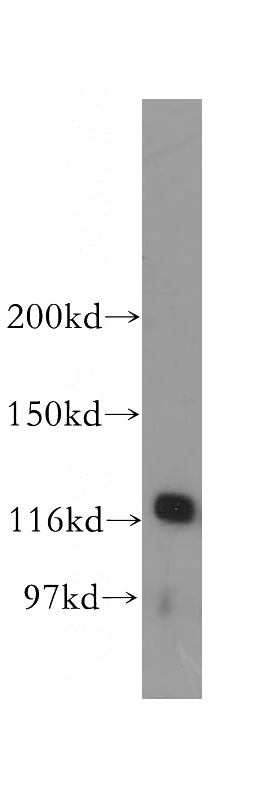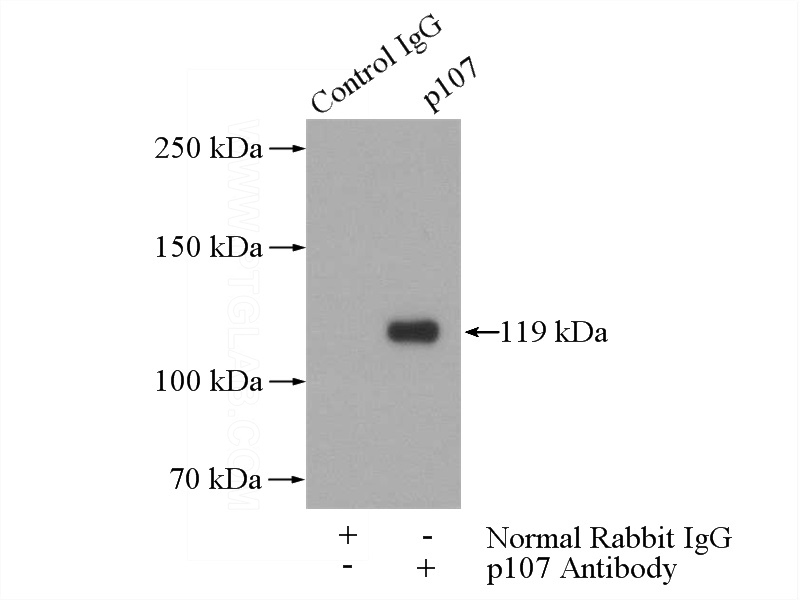-
Product Name
p107 antibody
- Documents
-
Description
p107 Rabbit Polyclonal antibody. Positive WB detected in mouse testis tissue, COLO 320 cells. Positive IP detected in mouse testis tissue. Observed molecular weight by Western-blot: 119 kDa
-
Tested applications
ELISA, WB, IP
-
Species reactivity
Human,Mouse,Rat; other species not tested.
-
Alternative names
CP107 antibody; p107 antibody; PRB1 antibody; RBL1 antibody; retinoblastoma like 1 (p107) antibody; Retinoblastoma like protein 1 antibody
-
Isotype
Rabbit IgG
-
Preparation
This antibody was obtained by immunization of p107 recombinant protein (Accession Number: NM_183404). Purification method: Antigen affinity purified.
-
Clonality
Polyclonal
-
Formulation
PBS with 0.02% sodium azide and 50% glycerol pH 7.3.
-
Storage instructions
Store at -20℃. DO NOT ALIQUOT
-
Applications
Recommended Dilution:
WB: 1:500-1:5000
IP: 1:200-1:2000
-
Validations

mouse testis tissue were subjected to SDS PAGE followed by western blot with Catalog No:113531(RBL1 antibody) at dilution of 1:500

IP Result of anti-RBL1 (IP:Catalog No:113531, 4ug; Detection:Catalog No:113531 1:500) with mouse testis tissue lysate 4000ug.
-
Background
Retinoblastoma-like protein 1, also named RBL1, p107, is a member of E1A-binding proteins, which contains a A/B pocket, or pRb. Via this structure, RBL1 can bind to viral oncoproteins and other perteins containing LXCXE motif. It regulates cell proliferation via phosphorylation-sensitive interactions with E2F transcription factors and other proteins. Key regulator of entry into cell division. Directly involved in heterochromatin formation by maintaining overall chromatin structure and, in particular, that of constitutive heterochromatin by stabilizing histone methylation. Recruits and targets histone methyltransferases SUV420H1 and SUV420H2, leading to epigenetic transcriptional repression.(uniprot). It has been reported there are two transcirpts variants of RBL1, which encode a 119-kd protein and a 68-kd protein(PMID:7490090).
-
References
- Guo L, Song L, Wang Z, Zhao W, Mao W, Yin M. Panaxydol inhibits the proliferation and induces the differentiation of human hepatocarcinoma cell line HepG2. Chemico-biological interactions. 181(1):138-43. 2009.
Related Products / Services
Please note: All products are "FOR RESEARCH USE ONLY AND ARE NOT INTENDED FOR DIAGNOSTIC OR THERAPEUTIC USE"
